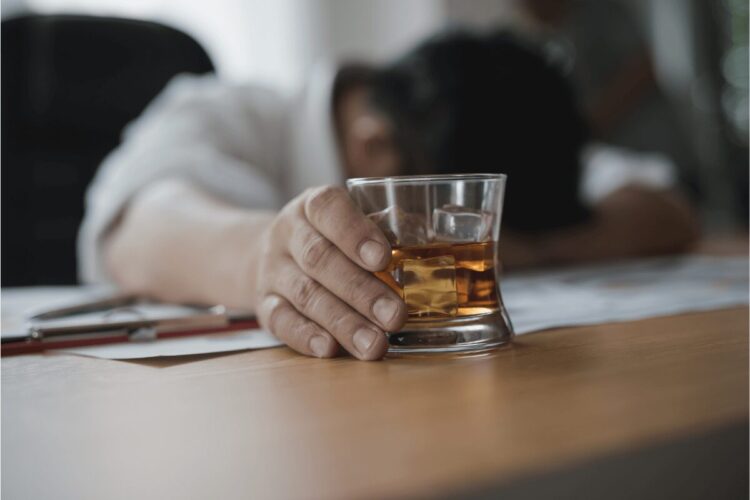Substance misuse and mental health issues are frequently linked and may be overlooked. Dual diagnosis is a complicated issue that affects many people. The combination of addiction and depression creates a seemingly unbreakable barrier, and de-addiction centres provide a road to comprehensive recovery.
De-addiction centres understand that addiction and mental health do not work in isolation. They go deeper to learn how anxiety stimulates cravings, despair prompts relapse, and trauma moulds substance use behaviours. It’s a mesmerizing dance that demands specialised skills to unravel. Let’s examine the nuances of dual diagnosis, coping techniques, and relapse prevention strategies.
Untangling the Knot: Personalized Treatment Plans

Consider the scenario as an entangled ball of yarn, with each thread representing a contributing element to the dual diagnosis. De-addiction facilities offer a friendly atmosphere, trained specialists, and a community of people who understand your situation. Therapists and psychologists who specialize in de-addiction painstakingly trace each strand to uncover the main reason and create a specific treatment plan.
More Than Just Abstinence: Empowering Lasting Change
De-addiction programs realise that rehabilitation is more than just ceasing using substances. It is about giving people the skills they need to manage life’s turbulent waters. They teach clients coping techniques, healthy communication skills, and relapse prevention measures, fostering resilience for a long-term future.
Spotting the Dual Diagnosis: Unveiling the Hidden Connection
While both addiction and mental health issues can manifest through similar symptoms, deciphering a dual diagnosis can be tricky. However, there are key signs that can help you understand the bigger picture.
Spotting the Dual Diagnosis: Unveiling the Hidden Connection

While both addiction and mental health issues can manifest through similar symptoms, deciphering a dual diagnosis can be tricky. However, there are key signs that can help you understand the bigger picture.
Unveiling the Addiction Clues:
- Increased drug use: The frequency, intensity, and overall intake increase.
- Risky behaviour: Taking part in harmful activities while under the influence becomes increasingly prevalent.
- Tolerance: The need for more of the same drug to provide the same effect.
- Withdrawal symptoms: Include physical and emotional suffering while attempting to discontinue or lessen consumption.
Shifting the Mental Health Landscape:
- Mood swings: Sudden shifts in emotions such as despair, anxiety, or impatience.
- Cognitive difficulties: Difficulty focusing, remembering, or making decisions becomes an issue.
- Social isolation: Withdrawal from loved ones and activities.
- Changes in sleep and appetite: Sleep and eating routines become interrupted.
- Suicidal ideation: Having ideas of self-harm or suicide.
When Addiction and Mental Health Collide:

- Self-medication: Using drugs to alleviate mental health problems such as anxiety or sadness.
- Substance abuse: Exacerbates pre-existing mental health conditions.
- Functional challenges: Difficulty executing everyday chores or obligations as a result of both disorders.
- Legal and financial issues: Result of both addiction and mental health challenges.
Beyond the Symptoms:
Keep in mind that these are only a few signs, and a single symptom does not imply a dual diagnosis. However, if you see a combination of these symptoms in yourself or someone you care about, you should get expert advice to ensure an appropriate diagnosis and individualized treatment plan.
Battling Dual Diagnosis with a Toolkit for Lasting Recovery
De-addiction facilities understand that merely ceasing substance usage is only the first step. True recovery means providing people with the tools and resources they need to face life’s obstacles without relapsing into addiction. Here’s how they promote long-lasting change:
Mastering Coping Mechanisms:

- Mindfulness and relaxation techniques: Learning to cope with stress and difficult emotions via activities like meditation, deep breathing, and yoga might help you prevent cravings and relapses.
- Cognitive-behavioral therapy (CBT) identifies and confronts the problematic cognitive patterns that contribute to addiction, developing healthier ways of thinking and responding to stimuli.
- Creative outlets: Art, music, and other forms of creative expression can help people regulate their emotions and express themselves positively.
Cultivating Healthy Communication:
- Assertiveness training helps people learn to effectively state their expectations and limitations, which reduces the risk of feeling overwhelmed or dominated.
- Interpersonal skill development: Developing healthy connections and constructive conflict resolution skills is essential for dealing with life’s social challenges without utilizing drugs.
- Family therapy: Involving the family in the healing process may provide everyone with significant support, understanding, and communication skills.
Fortifying Relapse Prevention Strategies:
- Identifying high-risk scenarios and triggers: Recognizing situations or feelings that may lead to relapse allows people to develop proactive coping strategies.
- Creating a Support Network: Connecting with others in recovery, therapists, and other supportive individuals provides encouragement and accountability.
- Developing contingency plans: Creating a long-term strategy for handling cravings and triggers will help you avoid making impulsive judgments.
Unveiling the Risks of Untreated Dual Diagnosis

Failure to address dual-diagnosis diseases can have serious repercussions, such as extended suffering and worsening symptoms. Individuals who are not treated or are misdiagnosed may see their addiction and mental health disorders worsen. The interconnected nature of these diseases can result in a vicious cycle in which one exacerbates the other, exacerbating the overall impact on an individual’s well-being.
Without effective assistance, the chance of relapse is considerable, since underlying mental health difficulties continue to drive addictive behaviors. Furthermore, misinterpretation or neglect of one element of the dual diagnosis might result in inefficient treatment options, delaying the individual’s journey to recovery.
A Safe Haven for a Holistic Recovery: De-addiction Centres
Dual diagnoses might seem overwhelming, but de-addiction programs provide a glimpse of hope. Recognizing the complex link between addiction and mental health, they devised specialized strategies to manage both simultaneously. This comprehensive method allows people to not only abstain, but also make long-term changes. De-addiction programs provide people with the tools they need to face life’s obstacles with resilience and confidence by teaching them efficient coping mechanisms, healthy communication skills, and relapse prevention techniques.
 Hi Boox Popular Magazine 2024
Hi Boox Popular Magazine 2024



